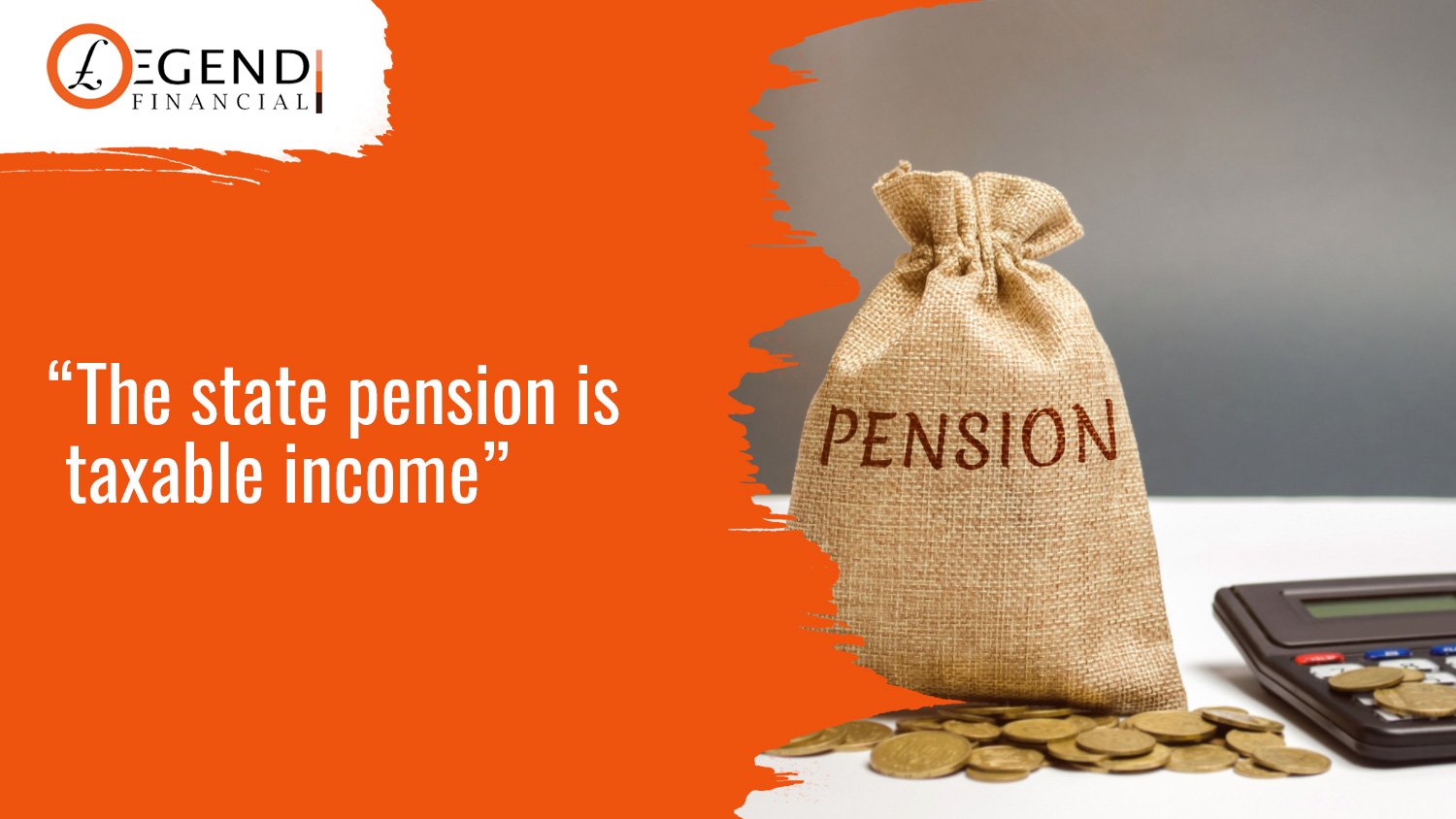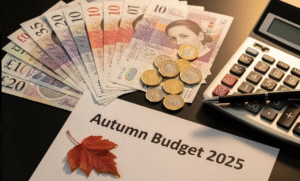Contents
In 1908 the initial state pension was presented to the United Kingdom. Social Government’s monetary help brought this concept, and it is ongoing till now, with people of all ages receiving some form of state pension. Finally, in the counting period, the state’s retirees got a yearly £97 billion, with Government retirement pension installments signifying almost fifty percent all-out government help spending. When you arrive at the Government’s current retirement age, you are qualified for the state benefits. This article has been intended to give an overall thought of income tax of your state benefits.
What is State Pension?

What is the State Pension Age?
The State Pension age is changing right now. Individuals reaching State Pension age now will do so at the age of 66 for both men and women. For those born after April 5, 1960, the State Pension age will gradually increase to 67, and eventually 68. This is a benefit that you will receive when you reach retirement age.
The amount of pension you will receive is determined by the number of Social Security contributions you have made. You can secure your state pension when you reach the statutory retirement age. Individuals are limited to 66 years from April 2021. The state retirement age will rise again on May 6, 2026, and reach 67 on March 6, 2028. (It later affects anyone born between April 6, 1960, and April 5, 1977).
Is it Compulsory to Pay Tax on State Pensions?
You may be surprised to learn that you must pay annual Tax on the amount of money taken from your pension. The reason behind this is that your retirement isn’t like a financial balance – you don’t ‘claim’ all that cash, but instead it is held for you by the pension pot. This states that when you take money from your pension, it takes into account your average pays as if it were a reward.
The short answer is that pension payment is taxed similarly to other expenses. You have an individual personal allowance (£12,500 for the 2021/22 fiscal year) on which you pay no personal tax, and after that, you pay 20% annual tax on everything between £12,500 and £50,000 before the higher rate tax kicks in. In any case, there are a couple of conditions wherein you won’t pay a tax on all benefits installments.
Moreover, there are procedures for restricting the proportion of your pension lost to trouble. As opposed to what numerous people think, the state benefits aren’t excluded. Be that as it may, the money you get is paid ‘gross’ – with close to no cost being deducted. In the event that your hard and fast allowance from all sources, including the state benefits, is more noticeable than your assessment excluded allowance, the tax is standard on your state pension.
This will consistently be deducted from any private benefits or payment you might have paid through the PAYE structure. In any case, expecting you have no PAYE pay, you’ll have to complete a self-examination of government structure and pay any tax due directly to HMRC. State benefits pay accessible, yet you want to pay expense will depend upon your full yearly pay. Your annual remuneration (in the assessment year 2021/22) is £12,500, and the primary new state pension you can get is £8,767. So, if accepting your chief allowance is from the state benefits, you won’t settle any yearly tax. In any case, expecting you to have pay from various sources that push your installment over the yearly pay, you will pay annual tax on everything over that figure.

While this can mean you can pay no expense in any way, shape, or form on such a solitary sum (expecting all of your accessible allowance falls inside your settlement, for example), it is fundamental to recollect that when you are looking at your ‘other pay’ you should dismiss the 0% rates which are used to trouble hold assets and benefit income – that is the starting rate for venture reserves, the save subsidizes nothing rate (or individual speculation finances reward) and the benefit nothing rate (or benefit allowance). Toward the day’s end, the request is the most vital speed of cost, which would apply expecting pay falling in these 0% rates taxed at the regular rates. This can significantly affect the expense payable on a solitary sum.
Thus, since we are looking at the expense rate suitable, we ignore any rewards and reliefs which are valid ‘tax minimizers’ in the tax calculation, for instance, the marriage payment (as it applies to the person from the couple getting it) and the married couple’s settlement.
How Does State Pension Work?
The State Pension you’ll get depends on the National Insurance Contributions you make during your working period and the number of ‘qualifying years’ you have developed. State Pension number cruncher to check your National Insurance Contribution record. You simply need to respond to a couple of straightforward inquiries to discover the amount of State Pension you could get, when you can guarantee it and how you might conceivably build it. Checking your State Pension figure is an urgent piece of retirement arrangement and will assist you with working out exactly the amount you remain to get from the public authority.
You will receive the new State Pension if you reach State Pension age on or after April 6, 2016 (i.e., a man born after April 6, 1951 or a woman born after April 6, 1953). If you reached State Pension age before April 6, 2016, you will continue to receive it under the old system, even if you defer taking it. Your State Pension privilege could be higher because of the age you were the point at which the new State Pension rules (2016) happened. You can check the public authority’s website for more data on this. The State Pension is a regular payment from the public administration the amount can guarantee when they arrive at State Pension age. Your State Pension age relies upon when you were born. You can discover your State Pension age by utilizing the mini-computer on the GOV.UK site.
The amount of your new State Pension is determined by your National Insurance record. To be eligible for the full new State Pension (£185.15 per week for tax year 2022/2023), you must have 35 years of contributions. To be eligible for any new State Pension, you must have made contributions for at least ten years.
The measure of State Pension you’ll get relies upon the number of ‘qualifying’ long periods of National Insurance payments you have. This incorporates National Insurance commitments that you pay when you are working and responsibilities credited to you when you can’t work. You can get a gauge of the amount of State Pension you could get on GOV.UK. How your State Pension will function relies upon your age and gender.
How is a Tax Collected From My State Pension?
State pensions are taxable, but they are paid with no tax deducted. The State Pension is taxable income, but it is paid to you in cash. This means that no tax is deducted from the state pension at the point of collection. If your total taxable income, including your state pension, exceeds your allowances and reliefs, you must pay tax on the portion of your income that exceeds your allowances.
If you have taxable earned income, such as a private pension or employment income, HMRC may collect any tax owed on your state pension through the PAYE system.. The amount of pension you can receive from an occupational pension scheme at normal retirement age is limited to roughly two-thirds of your final remuneration if you have completed 10 years of service and have no benefits from a previous scheme.
Under the Pay As You Earn (‘PAYE’) system, HMRC requires pensioners to deduct tax from their pension income. HMRC uses a system of codes to tell your pension payer how much tax to deduct under the PAYE system. The goal is to collect the correct amount of tax each time you receive your pension and to spread your tax allowances out over the course of the fiscal year. However, you should still double-check your own taxes because the PAYE deduction is not always correct. HMRC sends you a notice of coding (form P2), which shows the allowances that HMRC believes you are entitled to and how HMRC is reducing your allowances to collect tax on other types of income you may have.
What Happens If I Defer My State Pension?
When you reach state pension age, you usually begin receiving your state pension. However, you have the option of deferring your pension for a period of time during that you will not obtain your state pension. State pension deferral means deferring or stopping your state pension till a time that is convenient for you. State Pension deferral occurs when you postpone claiming or decide to forego receiving your State Pension until a time that is convenient for you. This means that if you file a claim or re-file a claim, you may be eligible for more money.

If you postpone claiming, you may be eligible for additional state pension when you decide to do so. You can earn an additional 1% of your weekly pension for every nine weeks you delay claiming. To receive additional state pension, you must wait at least nine weeks before filing your claim. For example, if you defer your state pension of £100 for a minimum of nine weeks, your state pension will increase to £101 per week when you start taking it in week ten. The additional pension will be paid in addition to your regular state pension and taxed in the usual manner.
The sum of deferred pension does not count as income for tax credits although it is deferred. That is, your state pension is only counted as income for tax credit purposes if you actually claim it. If you approached state pension age before April 6, 2016, and claim a lump sum, it will count as income for tax credits uses in the year you purport to end the deferral, unless you delay receiving the lump sum until the start of the following tax year. It may be advantageous to postpone it if, for example, you would not be eligible for tax credits in the following year.
1 : Additional state pension
You can procure additional state pension at 1% of the week-by-week allowance for like clockwork you put off guaranteeing. You probably put off ensuring for no less than five weeks to get an additional state pension. For instance, assuming you conceded your state pension of £100 for the base time of five weeks, your state pension would have gone up to £101 per week from week six when you began to take it.
2 : Singular amount payment
If you postpone the application for the state pension for at least one year without interruption, you can have your additional money paid out as a lump sum. This means that you will receive a one-off payment based on the amount of your state pension. received if he had used it, as well as the interest on that amount. (Interest will always be at least two above the Bank of England base rate). You will also receive your state pension at the standard rate when you apply.
If you receive a one-off payment, you may have to pay income tax (this depends on your other income) and submit a new pension loan or housing benefit application that does not count. When calculating your entitlement to these benefits. More on this on pages 28-38. You will not be able to start collecting a flat rate until April 6, 2005, when the rules were changed. This means that if you postpone the application before that date, it will only count towards the additional weekly state pension, not as a lump sum.
For example, suppose you were granting your State Pension of £ 100 for the base period of nine weeks, your State Pension would increase to £ 101 per week from the 10th week when you start drawing. The year you quit or eventually quit; your expense rate may be higher because your business payment is saved for an appraisal than the next year you might get a lower payment in retirement. This fact can lead to the fact that you accept your pension and the supplementary pension (or a lump sum if you reached the legal retirement age before April 6, 2016) until the next year, in which your cost rate is lower.
If you acquired the statutory retirement age before April 6, 2016, and can claim a lump sum if you no longer have a deferred pension, you can request that the lump sum be paid out in the tax year after the year of pension payment. You need to consider ordering this late payment, which could mean paying less Tax. Suppose you want to receive a capital pension based on flexible annuities or trivial commutation rules. In this case, you have to coordinate this with any Government deferred pension plan, as these flat-rate pensions are taxable as ordinary income, and you could lead to a higher tax rate.
The state pension, which includes any more state benefits, is an available pension despite the way that no tax is deducted earlier than it was paid to you. HM Revenue and Customs (HMRC) considers it after they set your Pay As You Earn (PAYE) code. If the kingdom pension is your foremost kind of profit, or your complete reachable pension isn’t precisely the singular praise (£12,570 for 2021/22), no tax will certainly be payable.
Accepting you confirmed up at state pension age before April 6, 2016, and choose to take a state blessings solitary sum, it will likely be available in the rate year wherein you, subsequently, determine to vow it or, in clear situations, the subsequent year. The tax tax to your unmarried sum will now not outperform the fee at which you are at this factor settling every year prices. We trust fundamentals about non-public Tax on kingdom pension have been cleared thru this text. Assuming you have got any inquiry, if it is no longer too much trouble, ask us Legend Financial.
References
6 reasons why you should delay taking your pension. (n.d.). Retrieved from Pensionbee: https://www.pensionbee.com/blog/2018/june/6-reasons-why-you-should-delay-taking-your-pens
Deferring. (n.d.). Retrieved from Department for Works and Pension: https://www.citizensadvice.org.uk/Global/Migrated_Documents/advisernet/09081615.pdf
How is my State Pension taxed? (n.d.). Retrieved from Money Helper: https://www.moneyhelper.org.uk/en/pensions-and-retirement/tax-and-pensions/how-is-my-state-pension-taxed
Should I defer my UK state pension? (n.d.). Retrieved from Financial Times: https://www.ft.com/content/e25bff78-ac58-11e8-8253-48106866cd8a
Tax when you get a pension. (n.d.). Retrieved from gov.uk: https://www.gov.uk/tax-on-pension









2 responses
My state pension should have paid to me from 22.04. 2022. It has not come. Why.?
Dear David,
Thank you for your comments.
We are not able to answer this, as we do not know the facts. It would be better if you contact the department of works and pensions, for this as they can discuss and assist on these matters.
Kind regards.
Saiqa